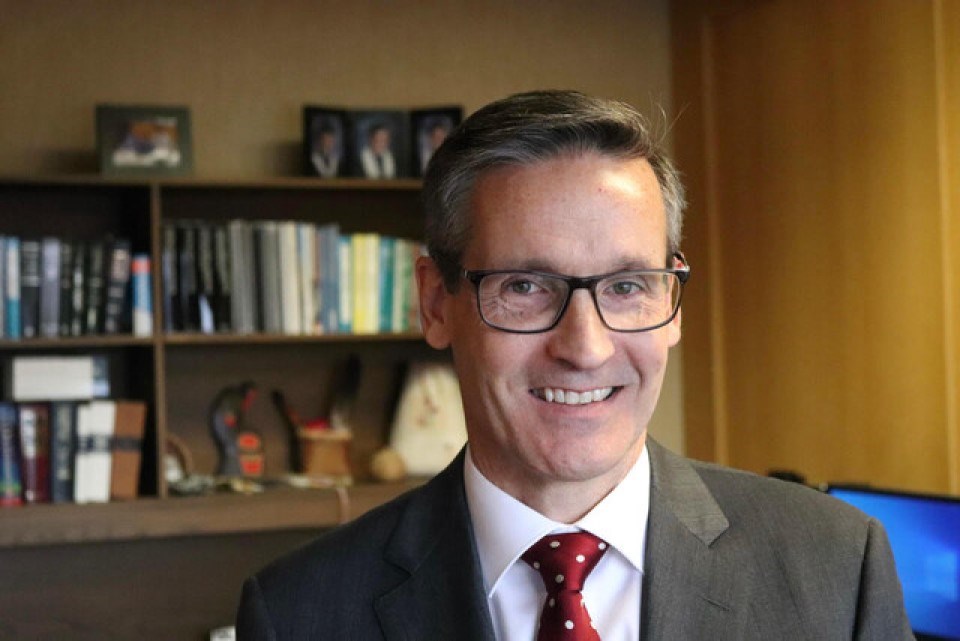The Kamloops judge who was recently named B.C.’s first Indigenous chief justice says he looks forward to using his role to close the “credibility gap” between First Nations people and the justice system.
Chief Justice Len Marchand’s appointment as the province’s new top judge was announced on Dec. 8 by Prime Minister Justin Trudeau.
Marchand himself only found out the previous evening when a surprise phone call from an Ontario area code nearly interrupted a night out.
“I wasn’t sure what it was at that time of night, but I answered it while my wife Laurie and I were on our way to Sagebrush Theatre to see the Western Canada Theatre production of Shrek The Musical,” Marchand told Castanet Kamloops.
On the other end of the line was federal Justice Minister Arif Virani with news that Marchand had been tapped to serve as B.C.’s next chief justice.
“He told me about the appointment and he seemed to be very well briefed on my background,” Marchand said. "He made some comments about some of the work I’ve done and some of the things he had heard about me.”
Marchand, son of pioneering Indigenous advocate and MP Len Marchand, spent most of his career as a lawyer working with and advocating for residential school survivors.
He was appointed a judge in 2013 in Kamloops provincial court. Four years later, he moved up the ladder to B.C. Supreme Court and, in 2021, he ascended again to the B.C. Court of Appeal — the top court in the province.
In a justice system that moves slowly at the best of times, Marchand’s rise has been meteoric. But he takes issue with that characterization.
“I would maybe use a different adjective,” he said.
“I might use ‘unexpected,’ in the sense that it’s not something I set out to do. I didn’t become a provincial court judge with the goal of becoming a Court of Appeal judge, never mind chief justice of British Columbia. It’s just something that has resulted from doing a lot of hard work.”
A lifetime of hard work has already seen Marchand leave his mark on reconciliation.
As a lawyer, he was instrumental in negotiating the Indian Residential School Settlement Agreement, which established the Truth and Reconciliation Commission and implemented a new procedure that levelled the playing field for residential school survivors. The new policy meant survivors would no longer have to go through the court process — described by Marchand as “highly re-traumatizing” — in their pursuit of justice.
“That is not the best way to get to the truth or do justice for those particular kinds of claims,” he said.
“When you set people up to fight against each other, the relationship you’re trying to build is being undermined. It’s the opposite of what you want to achieve."
While some progress has been made, Marchand said there’s much more to be done — momentum he hopes to further as B.C.'s chief justice.
“I would like to think that we’re building credibility,” he said.
“I know having had the privilege of sitting in the Indigenous sentencing court here [in Kamloops] and knowing that there are more and more Indigenous sentencing courts being created across B.C., that’s a really good example of closing the gap.”
Marchand said it’s a tough thing to measure. Incarceration rates are up for Indigenous people, he said, but that’s not the most indicative metric.
“We’ve been talking about this as being a crisis since the ‘90s, when the proportion of Indigenous people in federal institutions was maybe a third of what it is today,” he said.
“But there are bigger societal issues. I mean, the justice system comes in at the end. There’s already a problem — there’s been a crime that’s been committed and we have a role to play in sentencing. There are some deeper issues that need to be addressed that are outside the justice system, but I would like to think that we’re closing the credibility gap."
Marchand has been splitting his time between Kamloops and Vancouver since his appointment to the B.C. Court of Appeal two years ago. Nothing about that will change now that he’s chief justice.
He said the changes under his new title have been minimal. The first priority is still judging, he said, but he does now tend to some additional administrative responsibilities. He also sits on committees and represents B.C. and the Yukon on the Canadian Judicial Council.
Now that he’s sitting at the top of B.C.’s judiciary, it looks like Marchand’s unexpected and meteoric trajectory might have crested. He is aware that his name comes up in discussions about potential appointments to the Supreme Court of Canada, but he said he’s not interested.
“No, no, no — I don’t foresee that,” he said.
“I am very happy here and I can tell you I don’t have aspirations to serve in some other judicial capacity.”




